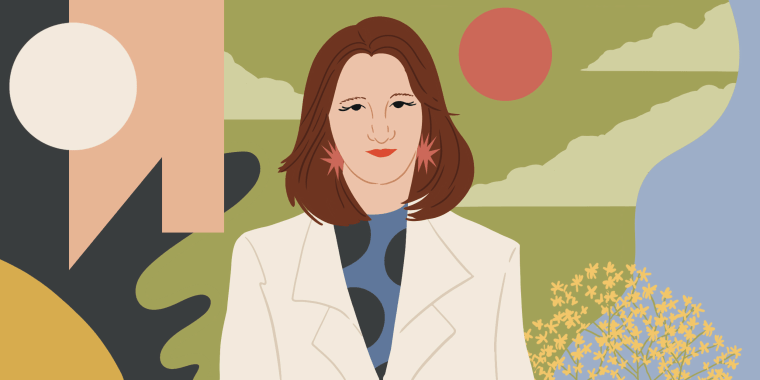For Dr. Maria Alcaide, those first moments at the beginning of March when the coronavirus started to rage in the U.S. were intense.
"As infectious disease doctors, we always try to be ahead, thinking of what's going to happen," said Alcaide, director of infectious diseases research at the University of Miami Health System. "But this was different. We had the theory, we knew what could happen, we were waiting, we were trying to get ready, but this virus was faster than what we could imagine.
"The most challenging part was adapting to how fast things were moving," she said. "The virus spread so rapidly."
Full coverage of the coronavirus outbreak
Even though it has been the busiest time in Alcaide's career, it's also exciting to be on the front lines of battling the global pandemic.
Alcaide is leading therapeutic and vaccine trials at the University of Miami, including the Moderna vaccine clinical trial, which involves 1,000 participants.
Before COVID-19, Alcaide's work was primarily focused on HIV, as well as other emerging diseases, like Zika, which is transmitted by mosquitoes. Alcaide has been working on an intervention study in Argentina for people living with HIV who have difficulty getting access to health care. In Zambia, her clinical research involves working with women of reproductive age who have HIV and studying how interventions can improve their health. She is also working on an HIV study in Miami funded by the National Institutes of Health.
When the pandemic began, Alcaide had to shift gears to focus on COVID-19 while continuing her other work.
Seeing what was coming to her state and knowing that the health care system would be overwhelmed, she began learning from other countries, especially countries in Europe, and from states that were reaching peaks in their numbers of cases and hospitalizations before Miami. Florida became the center of the pandemic in July, with Miami-Dade County accounting for the highest number of cases.
As a physician scientist, Alcaide began to think about how to get the hospital's research program ready to take on projects to respond. A lot of that involves new ideas to better understand COVID-19, as well as participation in clinical trials.
She led a program at the University of Miami hospitals administering convalescent plasma to coronavirus patients from those who were previously infected and had recovered.
Most of the research on COVID-19 has been on patients who are hospitalized, because they are the ones who are most ill and in need of treatment. However, most people who become infected aren't hospitalized, and they stay in the community. Alcaide is working on a study to better understand how those people are affected by the coronavirus and how it can affect their physical and mental health.
"It's important to understand how COVID persists in the secretions, how long are they infectious, are they able to get the same antibody response as those who are in the hospital, and, of course, looking for strategies for prevention, like a vaccine, which is critical," she said.
Alcaide has also played a role in keeping the community informed, doing media interviews in English and Spanish, which is critical in South Florida, which is predominantly Latino and has a high number of immigrant families who speak Spanish as a first language.
Alcaide said she always wanted to become a doctor and was always passionate about and fascinated by infectious diseases.
After studying medicine in Spain, she went to Miami, which she said she considers a great training ground in her field.
She said the city is unique because you deal with the infectious diseases of the developed world, as well as tropical diseases from the Caribbean. "It's really a great place to do infectious diseases," she said.
Dealing with the pandemic hasn't been easy for Alcaide, who has three children, ages 9, 14 and 15. The older ones have become the managers of the house and help take care of the younger child.
To unwind, Alcaide goes for walks or runs with her kids, and they go to the beaches when they aren't crowded.
"We enjoy that quality time we always look for," she said.
Follow NBC Latino on Facebook, Twitter and Instagram.

